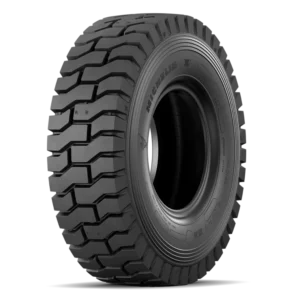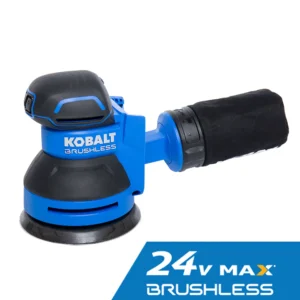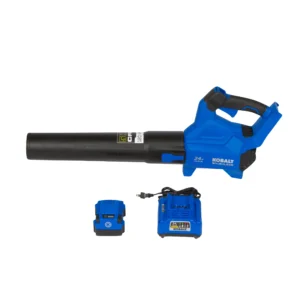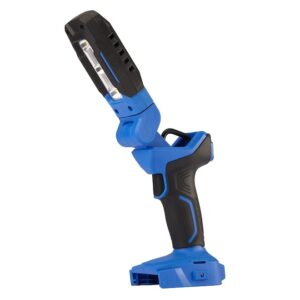2017 ford focus engine for sale
If you’re in the market for a 2017 Ford Focus engine for sale, you’re likely facing an engine failure, planning an upgrade, or working on a restoration project. Whether you’re a DIY enthusiast, a mechanic, or a car owner looking to get back on the road, finding the right engine at the right price is crucial. This comprehensive guide will help you understand your options, pricing, engine specs, where to buy, and what to watch out for.
2017 Ford Focus Engine for Sale: Your Ultimate Guide
If you’re in the market for a 2017 Ford Focus engine for sale, you’re likely facing an engine failure, planning an upgrade, or working on a restoration project. Whether you’re a DIY enthusiast, a mechanic, or a car owner looking to get back on the road, finding the right engine at the right price is crucial. This comprehensive guide will help you understand your options, pricing, engine specs, where to buy, and what to watch out for.
🚗 Overview of the 2017 Ford Focus
The 2017 Ford Focus is a compact car known for its nimble handling, efficient fuel economy, and practical design. Available in both sedan and hatchback body styles, it catered to a wide range of buyers. It came with several engine options, each suited for different driving needs—from daily commuting to spirited performance.
🔍 Engine Options in the 2017 Ford Focus
Before buying a replacement, you need to know which engine your vehicle uses. The 2017 Ford Focus was available with four main engine types:
1. 2.0L Ti-VCT I-4 (Standard Gas Engine)
-
Horsepower: 160 hp
-
Torque: 146 lb-ft
-
Fuel Type: Gasoline
-
Transmission Compatibility: Manual or automatic
-
Common in: S, SE, SEL trims
2. 1.0L EcoBoost I-3 (Turbocharged Gas Engine)
-
Horsepower: 123 hp
-
Torque: 125 lb-ft (up to 148 lb-ft with overboost)
-
Fuel Type: Gasoline
-
Transmission Compatibility: Manual or automatic
-
Common in: SE EcoBoost Package
3. 2.0L EcoBoost I-4 (High-Performance)
-
Horsepower: 252 hp
-
Torque: 270 lb-ft
-
Fuel Type: Premium Gasoline
-
Common in: Focus ST
4. 2.3L EcoBoost I-4 (High-Performance)
-
Horsepower: 350 hp
-
Torque: 350 lb-ft
-
Fuel Type: Premium Gasoline
-
Common in: Focus RS
Knowing your VIN (Vehicle Identification Number) or checking the under-hood label will help determine the exact engine model in your Focus.
🔧 Why You Might Need a 2017 Ford Focus Engine Replacement
🛠️ Engine Failure
-
Blown head gasket
-
Seized engine due to lack of oil
-
Overheating issues
-
Excessive wear from high mileage
💨 Performance Upgrades
-
Swapping a 2.0L for a 2.3L EcoBoost (for racing or tuning)
-
Dropping a higher-output engine into a base model
🧰 Restoration Projects
-
Salvage Focus rebuilds
-
Flood-damaged or crashed cars being restored
💲 Cost Efficiency
-
Engine replacement can be more affordable than buying a new vehicle
💰 How Much Does a 2017 Ford Focus Engine Cost?
Engine prices vary based on the engine type, condition (used, rebuilt, remanufactured), and mileage.
| Engine Type | Used Price Range | Rebuilt/Remanufactured Price |
|---|---|---|
| 2.0L Ti-VCT I-4 | $800 – $1,500 | $2,000 – $2,800 |
| 1.0L EcoBoost I-3 | $600 – $1,200 | $1,800 – $2,500 |
| 2.0L EcoBoost I-4 (ST) | $1,200 – $2,200 | $3,000 – $4,000 |
| 2.3L EcoBoost I-4 (RS) | $3,500 – $6,500 | $6,500 – $8,000+ |
Pro tip: Always factor in installation costs if you’re not doing the swap yourself. Professional labor can range between $700 and $2,500 depending on complexity.
🏪 Where to Find a 2017 Ford Focus Engine for Sale
Here are some of the best places to look:
1. Online Auto Parts Marketplaces
-
Car-Part.com – Search nationwide junkyards and recyclers
-
eBay Motors – Offers used and rebuilt engines with buyer protection
-
LKQ Online – One of the largest salvaged parts networks in the U.S.
-
RockAuto.com – Offers remanufactured options and rebuild kits
2. Local Junkyards or Auto Salvage Yards
-
Check for low-mileage Focus vehicles being parted out
-
Call ahead and verify engine compression if possible
3. Certified Remanufacturers
-
Jasper Engines
-
ATK Engines
-
Powertrain Products Inc.
4. Facebook Marketplace / Craigslist
-
Can offer good deals but requires caution and due diligence
-
Always verify the engine’s condition and VIN compatibility
📋 What to Check Before Buying a Used Engine
When buying a used 2017 Ford Focus engine, ensure the following:
✅ Compatibility
-
Match the engine code and transmission type
-
Verify if it’s from the same trim level or variant (e.g., ST vs SE)
✅ Mileage
-
Lower mileage typically means longer lifespan
-
Avoid engines with 150,000+ miles unless you plan to rebuild
✅ Warranty
-
Many sellers offer 30 to 90-day limited warranties
-
Remanufactured engines may include 1 to 3-year warranties
✅ Compression Test
-
Ask the seller if a compression test was done
-
Healthy cylinders should have even and strong pressure (ideally 160–200 psi)
✅ Visual Inspection
-
Check for signs of oil leaks, corrosion, broken mounts, or missing parts
-
Verify that the timing belt/chain is in good shape (or plan for a replacement)
🛠️ Should You Choose a Used, Rebuilt, or Remanufactured Engine?
Here’s a comparison to help you decide:
| Type | Pros | Cons |
|---|---|---|
| Used | Affordable, faster availability | Unknown wear and tear, shorter lifespan |
| Rebuilt | Worn parts replaced, more reliable | May vary in quality depending on builder |
| Remanufactured | Factory-spec rebuild, extensive warranty | Higher cost, longer lead times |
Best for budget: Used
Best for reliability: Remanufactured
Best middle-ground: Rebuilt
🧑🔧 Installation Tips for DIY or Mechanics
🧰 Tools & Equipment Needed
-
Engine hoist
-
Socket & wrench set
-
Torque wrench
-
Coolant, oil, spark plugs, and filters
-
Engine stand (optional)
⚠️ Cautionary Notes
-
Always disconnect the battery first
-
Replace all gaskets, filters, and fluids during the swap
-
Update your ECU or engine control software if switching engine variants
-
Check motor mounts, hoses, and accessories for wear
🔄 Should You Consider an Engine Swap or Upgrade?
If you’re swapping engines, consider the following:
🔁 Swapping 2.0L for 2.3L EcoBoost (Focus RS Engine)
-
More power, great for track builds
-
Requires ECU tuning, transmission mods, and stronger suspension
💨 Swapping to 1.0L EcoBoost (Fuel Economy)
-
Ideal for daily driving and commuting
-
Lower power output but more MPG
💥 Going Electric?
-
Some enthusiasts are converting old Focus models into EVs using Tesla or Nissan Leaf motors
-
This is an expensive and technical project but is growing in popularity
🧾 Legal Considerations
-
Emissions Compliance: Check with local DMV or emissions authorities (especially in California and New York)
-
VIN Matching: Some states require engine numbers to match or be reported
-
Insurance Notification: Inform your insurer of major engine changes
🛡️ Warranty & Return Policy Tips
-
Always get the terms in writing
-
Know what’s covered—block, heads, gaskets, etc.
-
Ask if labor costs are reimbursed in case of engine failure
-
Check the return window and shipping terms
💬 Frequently Asked Questions (FAQs)
❓Can I install a 2017 Ford Focus engine in a different model year?
Yes, but only if the engine is compatible. Engine mounts, ECUs, and emission systems may differ between years, especially across 2012–2018 models.
❓How long will a replacement Focus engine last?
If properly maintained, a used engine with under 100k miles can last 100,000+ more miles. Remanufactured engines can often last as long as brand-new ones (200k+ miles).
❓What is the best engine for a 2017 Ford Focus?
It depends on your needs. The 1.0L EcoBoost is ideal for MPG. The 2.0L is balanced. The 2.3L EcoBoost (Focus RS) is the top performer.
❓Where can I find a 2017 Ford Focus ST engine for sale?
Look for specialty performance parts sellers, eBay, salvage yards that focus on sports models, or forums like FocusFanatics or Reddit’s r/FordFocus.







There are no reviews yet.